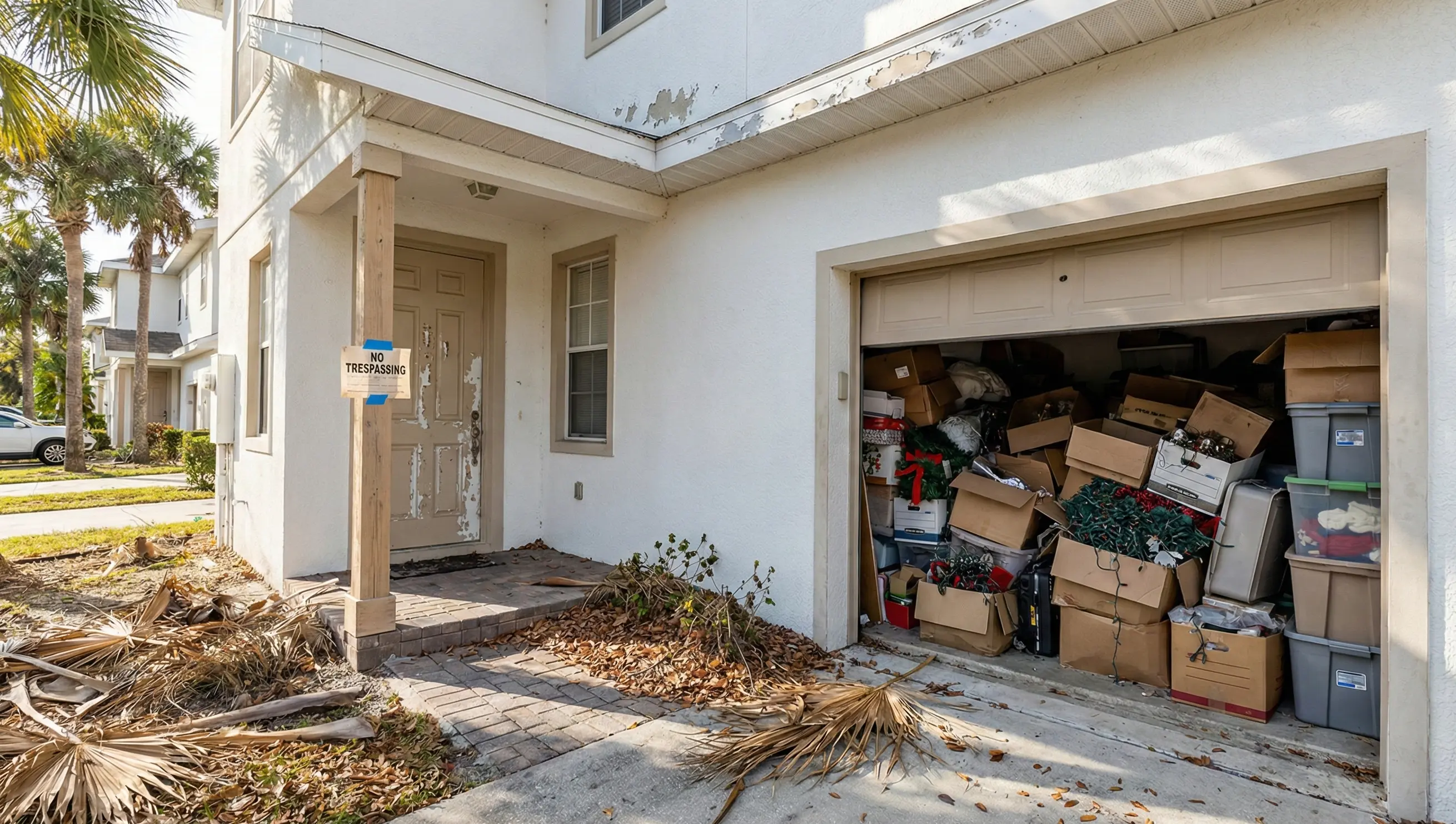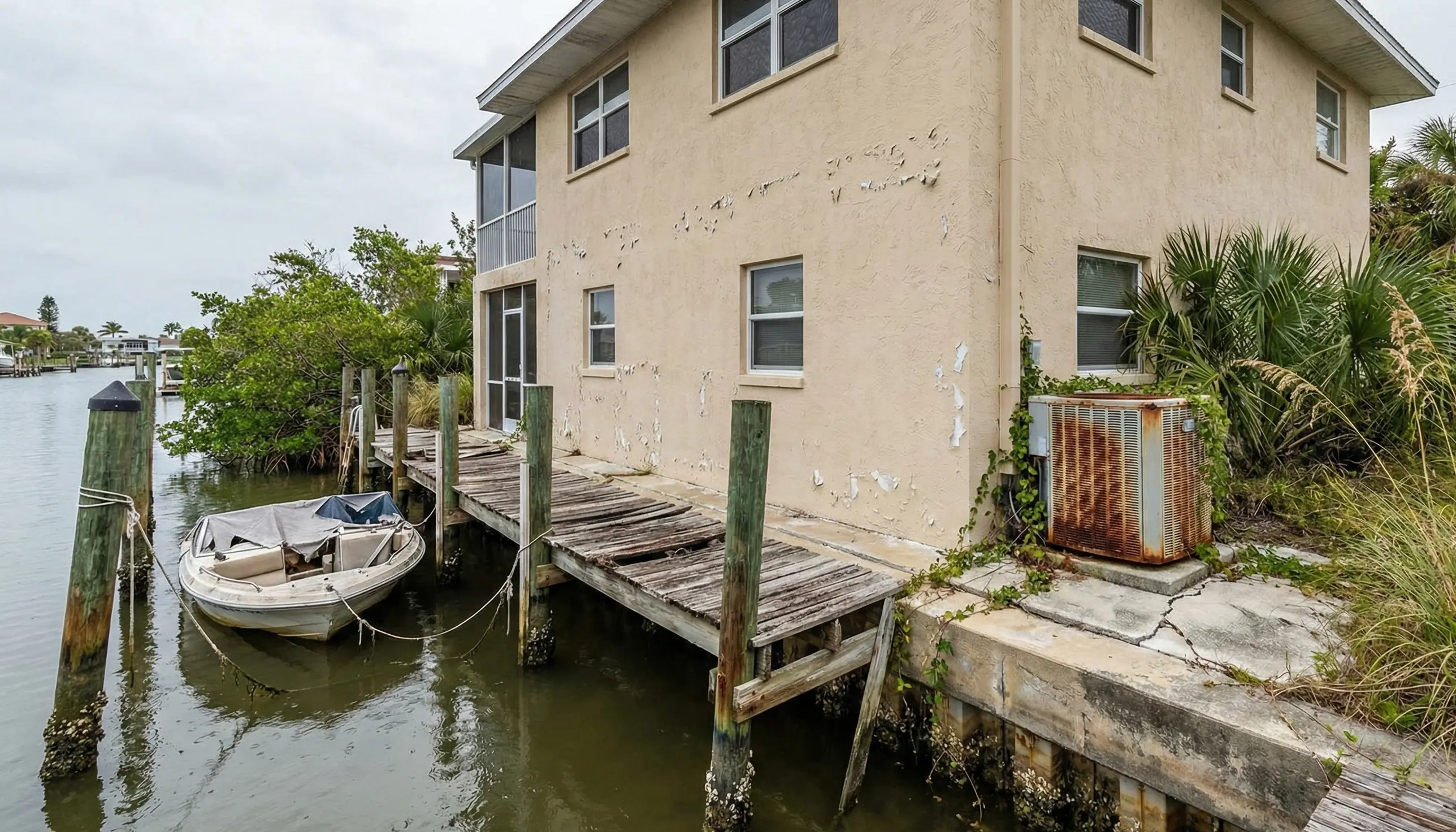Sell Your Probate or Inherited House in Florida
Last updated: February 2026
Inherited a house you don't want? Probate in Florida takes 6-12 months, sometimes longer. During that time, you're paying property taxes, insurance, maintenance, and utilities. We can close in 7-60 days and buy your house as-is.
Get My Cash Offer
Quick Answer
Can you sell a house in probate in Florida? Yes, but you need court approval first. In Florida, the personal representative (executor) can petition to sell the property during probate. Cash buyers often work better because they can wait for court timing without financing contingencies. We close in 7-60 days and buy as-is.
Us vs. Franchises: What's the Difference?
| Factor | FL Home Buyers | Franchises |
|---|---|---|
| Negotiation | Yes, we negotiate | Fixed pricing |
| Fair Price | Market-based offers | Lowball offers |
| Local Knowledge | Florida-focused | National chain |
| Flexibility | Custom solutions | One-size-fits-all |
How to Know We're Legit
Worried about scams? Here's how to verify we're the real deal:
Proof of Funds
We can show proof of funds. Ask us. Real buyers have real money.
Local Office
We're based in Palm Beach Gardens, FL. You can visit our office.
BBB A+ Accredited
Check our BBB rating. We're A+ accredited. That means something.
Licensed General Contractor
We're licensed. You can verify our license with the state.
The Probate Clock is Ticking
Probate in Florida typically takes 6-12 months, sometimes longer. During that time, you're responsible for property taxes, insurance, maintenance, and utilities. If multiple heirs are involved, getting everyone to agree can be nearly impossible. The longer you wait, the more it costs.

Why Selling to Us Simplifies Your Probate Sale
We Buy As-Is
We buy houses in any condition—no need to fix anything before selling.
Fast Closing
We can close in 7-60 days. Probate takes 6-12 months. You get cash. You split it. You move on. No waiting.
We Work with Attorneys
We work with your probate attorney or estate executor to understand the situation. We know the probate process. We've done this hundreds of times.
No Commissions or Fees
We don't charge commissions or junk fees. The price we offer is the price you get.
How We Handle Probate
Here's how we can help:
- We assess the property and understand the legal situation.
- We make a fair cash offer that can be presented to the court if necessary.
- We buy the house as-is, with all contents if you prefer.
- We can often close before probate is fully complete, with the court's permission.
- You get cash and can distribute the inheritance quickly.
Want to learn more? Check out how it works or read our blog post about selling fast in Florida.
Real Example
A family inherited a house in Fort Lauderdale after their mother passed away. Three siblings lived in different states. They couldn't agree on repairs or listing price. The house was worth $250,000 but needed work. We bought it for $220,000, handled the cleanout, and closed in 30 days. Each sibling got their share wired directly. No arguments. No travel.

Florida Probate & Inherited Property Law
Reference: Florida Statutes §733
- Florida probate can take 6–12 months for formal administration, or as little as 30–45 days for summary administration (estates under $75,000).
- Under §733.612, the personal representative has the power to sell real property without court approval if the will grants that authority.
- Florida has no state income tax — inherited property gets a stepped-up cost basis under IRC §1014, so capital gains are calculated from the date-of-death value.
- The personal representative must notify beneficiaries within 3 months of appointment under §733.2123.
- Florida is a non-community property state — estate distribution follows the decedent's will or, if no will, the state's intestacy laws under §732.
Legal Questions Specific to Your Situation
Can the personal representative sell the house during probate?
Yes. Under Florida Statute §733.612, the personal representative has broad powers to sell real property, especially if the will grants that authority. If the will is silent, the PR may need court approval. We can work with your probate attorney to close during the process.
What is summary administration in Florida?
Summary administration is a simplified probate process available when the estate is valued at $75,000 or less (excluding homestead), or when the decedent has been dead for more than two years. It's faster — typically 30–45 days — and requires fewer court appearances.
Do I pay capital gains tax on an inherited house in Florida?
Florida has no state income tax. For federal taxes, inherited property receives a "stepped-up basis" to its fair market value at the date of death (IRC §1014). You only owe capital gains tax on appreciation AFTER you inherited it, not on the original purchase price.
Florida probate in 2026: Summary administration (estates ≤$75K) takes 1–3 months, while formal administration averages 9–12 months. Contested cases can drag on 2+ years for contested estates. Attorney fees follow a statutory schedule — for a $500K estate, expect ~$15,000 (3%). Over 67,000 probate cases were opened statewide in 2024, with 42% of cases pending over 18 months. Important: Florida has NO state inheritance or estate tax, and the 2026 federal exemption is $13.99 million per person (2025, indexed annually).
📊 2026 Florida Probate Statistics
Source: Florida Realtors®, ATTOM Data, Houzeo, Citizens Florida · Data as of February 2026
Don't Wait on Probate
The longer you wait, the more it costs. Get a cash offer today and settle the estate quickly.
Get Your Cash Offer
Tell us about your property. We'll give you a real number and help you settle the estate quickly.
We Handle This Situation in Every Florida County
See local market data and get a fair cash offer in your county:
